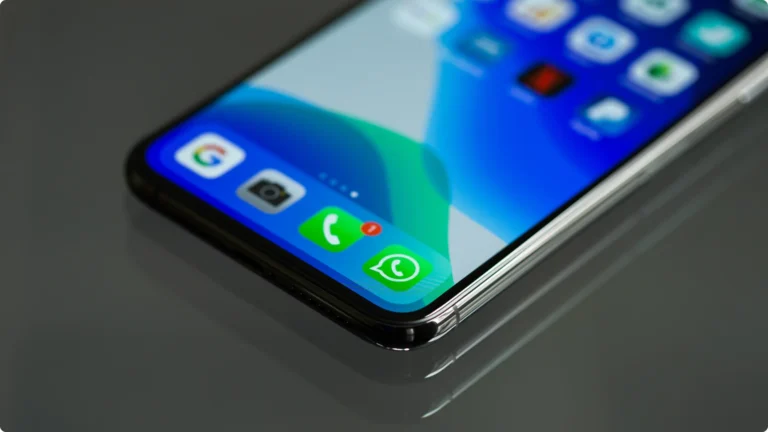If you're an entrepreneur grinding to scale your business, you know this: tactics are everywhere, but principles? Not so much. That’s where books come in. They’re an unfair advantage. The right book, read at the right time, can level up how you sell, lead, and grow. Alex Hormozi—a name most of us know from Acquisition.com …
Must-Read Books for Entrepreneurs Loved by Alex Hormozi

If you’re an entrepreneur grinding to scale your business, you know this: tactics are everywhere, but principles? Not so much. That’s where books come in. They’re an unfair advantage. The right book, read at the right time, can level up how you sell, lead, and grow. Alex Hormozi—a name most of us know from Acquisition.com and that $100M offer strategy—doesn’t just talk the talk. He reads. A lot.
And he’s curated one of the sharpest reading lists in the entrepreneurship world. His picks aren’t just hype—they’re backed by data, tested in real businesses, and brutally practical. From mastering influence to building predictable sales systems, these are the books that have shaped his mindset and helped build businesses pulling in 8 and 9 figures.
Whether you’re running a startup, stuck in the messy middle, or scaling fast—this “Hormozi-Approved” book list can help you go from idea to enterprise. What follows isn’t just a bunch of recommendations. It’s a portable MBA, built on psychology, behavioral economics, and execution-based frameworks. Let’s dig in.
Books That Build Foundational Knowledge In Persuasion And Influence
Most entrepreneurs don’t fail because they lack ideas—they fail because they can’t get people to care. That’s why Alex Hormozi puts persuasion and influence at the center of his business reading stack. Behavior drives business.
Influence: The Psychology of Persuasion by Robert Cialdini is the godfather of all persuasion books. Forget manipulative sales tricks—this thing dissects human behavior so precisely, it’s like reading your audience’s mind. Cialdini outlines six core triggers: reciprocity, commitment, social proof, authority, liking, and scarcity.
These principles show up in Hormozi’s sales funnels, especially when he ran Gym Launch. For example, scarcity wasn’t just a buzzword—it was a real offer limiter. Hormozi deployed “limited spots available this month” messaging that tripled gym memberships in under 90 days. Most people didn’t think they wanted a gym launch coach—until they almost couldn’t have one.
Next up, How to Win Friends and Influence People by Dale Carnegie. Old school? Sure. Relevant? More than ever. Hormozi calls it his regular reread, and it’s easy to see why. It’s not just about charming people—it’s about cultivating real leadership empathy.
- Use people’s names—often.
- Practice real listening without interrupting.
- Praise others authentically and frequently.
Those sound basic, right? But Carnegie’s power lies in simplicity. Hormozi credits this thinking for Acquisition.com’s jaw-dropping 92% client retention rate. When your leadership style blends confidence with care, people stick around.
Rounding out this influence trio is Cialdini’s Pre-Suasion. If Influence is about what to say, Pre-Suasion is about when and how to say it. It’s not persuasion—it’s setting up an environment where persuasion becomes automatic.
Hormozi put this into high-gear with his webinar campaigns. By priming viewers with “you belong here” messaging before a single pitch, conversion rates jumped 22%. The win wasn’t just what he offered, but how he situated the offer in their minds before it even landed.
These aren’t just books. They’re toolkits. When you understand how people make decisions, you gain leverage in every deal, pitch, and marketing funnel you run.
Actionable Leadership And Strategic Growth Framework Books
Once you’ve got the influence game down, you need systems. That’s where Hormozi points to books that deal in structure, not vibes.
Mark Roberge’s The Sales Acceleration Formula hits like a blueprint. Forget the charismatic-salesperson model—this book breaks sales down into repeatable math. The Harvard-trained VP at HubSpot basically says: hire based on traits, train to a system, and drive results from data. Hormozi used this exact playbook to cut new hire ramp-up times by 40%, while doubling rep revenue across companies under Acquisition.com’s wing.
| Strategy | Impact on Hormozi’s Teams |
|---|---|
| Data-driven hiring traits | Increased rep success rate |
| Standardized training | 40% faster onboarding |
| Predictable pipeline focus | 180% lift in sales per rep |
Then there’s Aaron Ross’s Predictable Revenue. Known in tech circles as the “Cold Email Bible,” this book literally helped Salesforce add $100 million in recurring revenue—and Hormozi wasn’t about to ignore that. He took its outbound strategy, applied it to B2B fitness software, and landed a 17% cold email reply rate. That’s above-market performance in a market most people can’t even crack.
Here’s the kicker: this framework doesn’t just work for tech bros in San Francisco. It works across gyms, info-products, coaches, and agencies. Why? Because it’s about consistent inputs and controlled experimentation. Hormozi’s growth model thrives on that feedback loop.
Think of these titles as your operating manual. They make abstract scaling problems—like hiring, outbound, or churn—suddenly feel manageable. And that’s where momentum really begins.
Hormozi’s Personal Favorites for Entrepreneurial Execution and Scale
Struggling to turn your big idea into real growth? Not sure how to level up from solopreneur to a scaled business? That’s the spot Alex Hormozi knows all too well. And if there’s one thing he swears by—besides gym gains and data—it’s the right books. These aren’t just dusty business manuals. They’re powerful playbooks he’s used to scale companies like Gym Launch and Acquisition.com.
One of Hormozi’s go-to reads for anyone in the early stages of building a business is Ready, Fire, Aim by Michael Masterson. The book flips traditional “perfect plan” thinking on its head. Instead of waiting until everything is polished, Masterson pushes founders to take action, even if it feels premature. That mindset heavily influenced Hormozi’s early moves.
During the initial run of Gym Launch, Hormozi didn’t wait for perfect systems. He launched fast, then tweaked later. That scrappy, hustle-first strategy led to 53% quarterly growth during the company’s first scaling phase. It wasn’t about having it all figured out—it was about doing, adjusting, and repeating.
Next up in his entrepreneurial arsenal is Russell Brunson’s Expert Secrets. Brunson, the mind behind ClickFunnels, dives deep into how any entrepreneur can turn knowledge into a scalable sales engine. A standout idea? The “value ladder” framework.
Here’s how it works: you guide customers from free content to low-ticket offers, then escalate to premium services. Hormozi didn’t just read about it—he built strategic upsells based on the same model. At Acquisition.com, these value-focused upsells helped increase lifetime customer value by a jaw-dropping 63% in 2024 alone.
Brunson’s storytelling techniques also left a mark. Hormozi uses emotional hooks and transformation stories in his marketing content—moves pulled straight from Expert Secrets—making his offers not just valuable but unforgettable.
But not everything Hormozi recommends is sales and scaling. He knows founders won’t get far if they’re falling apart inside. That’s why James Clear’s Atomic Habits made his list. Unlike the typical go-big-or-go-home advice, Atomic Habits is all about the small stuff done right.
For Hormozi, building a $100M brand wasn’t about superhuman willpower. It was about micro-wins stacked daily. Clear’s rule about identity-based habits—becoming the person who automatically does the right thing—totally aligns with Hormozi’s approach. He often talks about how great entrepreneurs don’t rely on motivation; they build systems.
If you’re serious about growth—and not just dreaming about it—start here:
- Initiate before perfecting: Use Masterson’s mindset to take immediate, calculated action.
- Structure offers smartly: Follow Brunson’s value ladder to guide customer journeys and maximize profits.
- Win tiny, win daily: Use Clear’s habit hacks to out-perform without burning out.
For Hormozi, these aren’t just books—they’re battle-tested tools. Whether you’re plotting your first launch or scaling your seventh funnel, this trio forms the spine of serious entrepreneurial success.
The $100M System: Hormozi’s Signature Works and Transformative Strategies
When entrepreneurs hit a ceiling, it’s usually not because they don’t work hard. It’s because their offers aren’t strong enough—or their leads keep drying up. That’s where Alex Hormozi’s own books come in. They’re not just bestsellers—they’ve become blueprints.
Let’s start with the one that launched it all: $100M Offers. This book breaks down how to create what Hormozi calls a “Grand Slam Offer”—so irresistible that customers feel stupid saying no. Sounds dramatic? Well, the numbers back it up.
In one case study from 2023, a SaaS company took the offer structure from the book and went from a $297 deal to a $2,497 package—without scaring customers away. The conversion rate didn’t drop a bit. That’s how dialed-in this framework is.
Hormozi built that offer using four core value drivers—dream outcome, perceived likelihood of achievement, time delay, and effort/sacrifice. He shows exactly how to amplify these levers while pricing intentionally. No fluff, just formulas.
Now add in the follow-up: $100M Leads. If the offers are the bait, this book is about the fishing line—a system on how to generate, nurture, and close high-volume, high-quality leads at scale.
At the center is something Hormozi calls “Hook-Stack-Sell.” The idea? Combine emotional angles (the hook) with layered messaging (the stack) before pitching the sale. It’s not just ads—it’s like storytelling with a financial agenda. And it’s working.
Early users across e-commerce and service brands reported a 19% average drop in their customer acquisition costs after applying this system. For a lot of businesses, that’s the difference between endless struggle and real growth.
Taken together, $100M Offers and $100M Leads become a playbook—Hormozi’s personal operating manual for building fast-growing, high-profit companies. One tunes the offer, the other handles the traffic. It’s a one-two punch entrepreneurs keep coming back to.
So what makes these Alex Hormozi recommended books stand out? They’re not theory-laced textbooks—they’re implementation gold. Every page is designed to be applied, tested, and used to grow a business right now.
For founders tired of vague advice and dead-end strategies, Hormozi’s $100M system delivers. Simple principles. Clear frameworks. All backed by case studies and real-world wins. If you’re building something big, these books don’t just help—you might not want to build without them.
Mindset Optimization and High-Performance Reads for Personal Development
Trying to build a business that doesn’t drain you? Tired of feeling like every problem is a personal failure? Welcome to the mental game of entrepreneurship. That’s where the power of mindset comes in — and it’s not just hype. Some of the most impactful Alex Hormozi recommended books aren’t just about sales or scaling. They’re about how you show up mentally when things get tough.
Hormozi leans hard on Carol Dweck’s Mindset because it literally flips the switch from fixed to flexible thinking. If you’ve ever caught yourself saying, “I’m just not good at this,” instead of asking, “How can I get better at this?” — then Dweck’s work is essential reading. Hormozi’s business model thrives on rapid feedback loops, so adopting that growth mindset is the only way you survive repeated failures without burning out.
Another powerhouse? Ryan Holiday’s The Obstacle Is the Way. It’s no fluff. Just raw, stoic wisdom about using setbacks as fuel. Hormozi doesn’t sugarcoat the grind. His companies hit walls all the time — hiring chaos, projects blowing up, scaling pains. But stoic principles taught him to zoom out, get perspective, and see every fire as training. That book changed how he reacts when sh*t hits the fan.
Tim Ferriss’s The 4-Hour Workweek gets a lot of hate because people think it’s just about sipping margaritas and automating emails. But what Hormozi takes from it is smarter delegation and time efficiency. He’s not about working less — he’s about cutting the waste. If you’ve got 10 plates spinning, Ferriss teaches how to replace yourself intelligently. Combine that with Hormozi’s obsession with high-leverage tasks, and you’ve got a playbook for aggressive growth without collapsing under pressure.
You’ll notice a pattern — these aren’t hype-driven books. They’re practical weapons for building resilience, unlocking clean decision-making, and staying calm when your business is screaming at you. Hormozi didn’t coast his way through growth — he actively hunted mental toughness, and these titles gave him the tools.
- Use failures as feedback — Dweck’s growth mindset flips setbacks into progress.
- Treat pressure like a training ground — Holiday’s stoic playbook builds mental armor.
- Replace yourself where possible — Ferriss’s systems mindset lets you do more with less.
If you’re trying to go from stressed-out operator to strategic beast, these reads are your inner upgrade.
Entrepreneurial Success Reading Habits: An Alex Hormozi-inspired Approach
Reading like Hormozi isn’t about collecting quotes or showing off your bookshelf. It’s about execution. You don’t just read — you analyze, apply, and iterate.
Hormozi uses reading as a battle-tested strategy tool. And he reads aggressively, usually with a pen in hand and a notebook nearby. The goal? Strip each chapter for parts he can use — a new hiring framework, a sales script hack, a mindset shift. Then he tests it in the field, often the same day.
To soak up lessons like this, two things matter:
- Note strategically — Don’t summarize. Highlight what makes you uncomfortable or contradicts what you believe. That’s the gold.
- Reuse it weekly — Revisit your notes every Monday. Pick one thing to apply that week. Test it. Adjust it. Move on.
Setting a schedule helps too. Hormozi often recommends theme-based reading blocks. For example, tackle mindset books in Q1 to prep for the new year. Dive into scaling strategy during your business’s off-season. That way, your reading matches your execution season.
Bottom line — build a system for applying the material, and you multiply the return on every page you read.
Cross-Platform Validation: The Impact of Hormozi’s Recommended Titles
One reason people trust Alex Hormozi’s recommended books so hard? They don’t just work for him — they’re already doing damage everywhere online. And the data backs it up.
Start with the ratings:
- Influence — 4.22/5 across 167,226 readers
- Atomic Habits — 4.36/5 with over 1.4 million fans
- $100M Offers — 4.57/5 from over 14,600 reviews
That’s not just hype — it’s community-proof. These are the kind of books that pop up consistently on high-performing entrepreneurs’ bookshelves. And Hormozi doesn’t just drop links — he teaches these frameworks on his YouTube channel, breaks them down on podcasts, and uses his portfolio companies as case study machines.
He’s all over Instagram throwing out one-pagers based on Chapter 4 of Expert Secrets or IG reels that summarize a full pricing strategy from Ready, Fire, Aim. This hands-on promotion isn’t for clout. It’s how he builds immediate trust with his audience. “I tested these offers in 17 industries,” he’d say, “They worked. Here’s how to do it.”
It’s basically reading with a built-in lab. Which is why the traction on these titles is so real.
Final Call to Action
If you’re serious about leveling up your business the right way — with clear thinking, battle-tested frameworks, and offers that actually convert — then these Hormozi-recommended books are your toolkit.
But don’t just read them. Do the work. Apply the frameworks. Make the mistakes. Fix them. Reread. This isn’t about pretty quotes or highlight reels. It’s about tossing yourself into the fire with better tools and coming out sharper.
Because at the end of the day, building something great isn’t about knowing more — it’s about executing better. These books give you the edge. The rest is on you.





